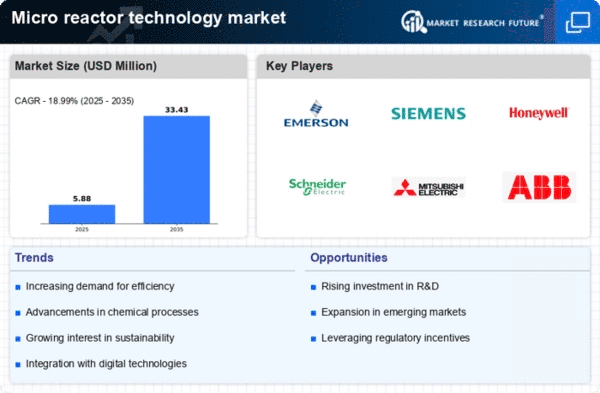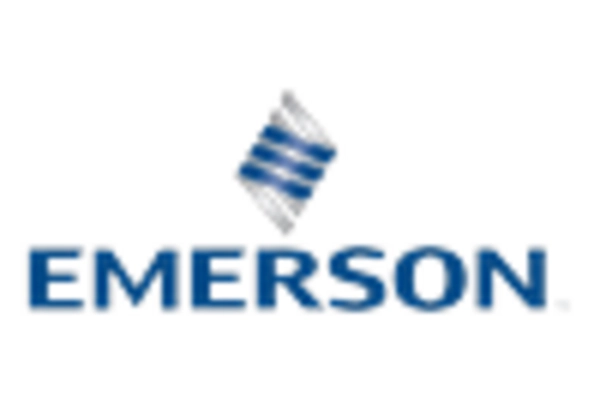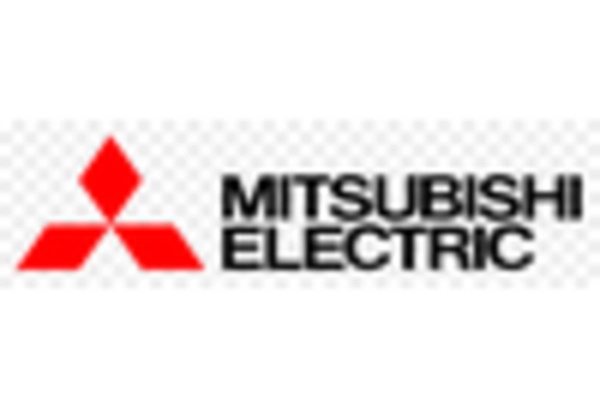Market Share
Micro reactor technology Market Share Analysis
The utilization of micro reactor technology in the pharmaceutical industry has been on the rise, particularly for the production of pharmaceutical intermediates and active pharmaceutical ingredients. This trend is replacing conventional batch reactors due to the superior benefits offered by micro reactors, including high yield, enhanced efficiency, and improved safety. One notable application of micro reactor technology is in the organic synthesis of highly exothermic immiscible fluids.
One of the driving forces behind the adoption of micro reactor technology in the pharmaceutical sector is its ability to deliver high yields with increased efficiency, making it a preferred choice over traditional batch reactors. The technology is particularly well-suited for processes involving organic synthesis of immiscible fluids that are highly exothermic. This advancement marks a significant departure from conventional methods and contributes to the overall improvement of safety and efficiency in pharmaceutical manufacturing.
The pharmaceutical industry's expansion in developing economies, such as China, India, Mexico, and South Korea, is expected to play a pivotal role in propelling the growth of the micro reactor technology market. For instance, according to the India Brand Equity Foundation (IBEF), India's pharmaceutical industry is poised to exhibit a robust Compound Annual Growth Rate (CAGR) of 12.89% between 2015 and 2020, with an anticipated market value of USD 55 billion by the end of 2020. The increasing prominence of these developing economies in the pharmaceutical sector underscores the potential for the widespread adoption of micro reactor technology.
The surge in the use of micro reactor technology in the pharmaceutical industry is closely linked to the expanding market for nanopharmaceuticals. Pharmaceutical companies are placing a growing emphasis on nanopharmaceutics to enhance both drug discovery and drug delivery processes. This heightened focus is expected to drive the demand for micro reactor technology due to its superior advantages during the forecast period. Nanopharmaceuticals play a crucial role in reducing the overall cost of drug development and delivery while simultaneously improving the efficiency of the delivery process. This dynamic contributes to the increasing demand for micro reactor technology within the pharmaceutical sector.
North America emerges as another significant market for micro reactor technology, with increased healthcare spending and the United States leading the region as a major consumer and producer of medicines. The region's robust investment in Research and Development (R&D) within the pharmaceutical industry is anticipated to further propel the global market growth. Additionally, governments are taking proactive initiatives to support drug delivery system applications, acknowledging the complexity of the technology. These initiatives are expected to be key drivers in boosting market growth significantly during the review period.
In conclusion, the escalating use of micro reactor technology in the pharmaceutical industry, driven by its benefits such as high yield, enhanced efficiency, and improved safety, is transforming conventional manufacturing approaches. The growth of the pharmaceutical industry in developing economies and the increasing emphasis on nanopharmaceuticals further contribute to the demand for micro reactor technology. In regions like North America, where healthcare spending is substantial, and significant investments in R&D are made, the adoption of micro reactor technology is poised to play a pivotal role in shaping the future of pharmaceutical manufacturing. Government initiatives supporting the application of complex technologies, especially in drug delivery systems, add another layer of impetus to the market's growth trajectory.



















Leave a Comment